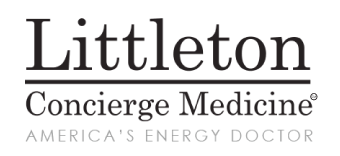Straightforward Talk About Nutritional Supplements
Nutritional supplements are an interesting and sometimes confusing topic. In general, they aren’t as well studied as pharmaceuticals, and many clinical trials that have been performed weren’t executed to the highest scientific standards. As is sometimes pointed out, drug companies can’t patent natural supplements, so there’s a lot less profit potential, and therefore a lot less incentive to perform serious studies (which are expensive).
This means there isn’t a whole lot of reliable evidence about how effective most nutritional supplements are for the various conditions they’re said to treat. Some are definitely better studied than others, though. Also, because the FDA doesn’t regulate dietary supplements like it does drugs, there’s a lot more room for unsubstantiated marketing hype.
And I have to stress that supplements are not a substitute for healthy eating and regular exercise.
With all that said, I do believe that various natural supplements can benefit many people. So here’s my take on the topic, free of hype, and some realistic advice about taking nutritional supplements.
All-Natural Doesn’t Necessarily Mean Safe
Before going any further, this is a really important point.
In general, nutritional supplements are considered safe. Most don’t usually cause side effects, and if they do, they’re typically mild and go away quickly as your body adjusts to the compound.
But some supplements do cause side effects, and they can also interact with other supplements or over-the-counter or prescription medications you take. Many can add to, increase, or inhibit the effects of other drugs and supplements. For this reason, you must consult your doctor before starting any supplement regimen.
For just one example, a number of supplements (like Gingko biloba, vitamin E, ginger, turmeric, and others) can thin your blood and reduce clotting. If you’re also taking aspirin, a prescription blood thinner or anticoagulant (such as warfarin/Coumadin or apixaban/Eliquis), or other drugs or supplements with similar effects, you can develop potentially life-threatening bleeding problems.
Benefits of Supplements
So, here’s what can be said for sure about dietary supplements.
They help prevent and treat nutritional deficiencies if you’re not getting enough of a certain compound through your diet. For example, vitamin B12 comes from animal products, so vegetarians and vegans will suffer from a deficiency without a supplement. This can come from fortified foods like breakfast cereals, or from a vitamin B12, B-complex, or multivitamin supplement.
Nutritional supplements can help improve physical and mental performance and health, as well as help manage various symptoms and conditions. It’s impossible to make broad, definitive statements in these regards, though. The evidence and results vary widely between supplements and different uses. It’s best to consult your doctor, a well-qualified nutritionist or natural health practitioner, and even do some diligent research on your own to determine what you might take for what you want to work on.
Also, different people experience varying results. The same supplement can work great for some individuals, while doing nothing for others. Some of this may be a placebo effect, but if the supplement is improving quality of life and isn’t doing any harm or becoming a financial burden, you can make the case that there’s nothing wrong with that. Finding the right supplements for you is often a matter of trial and error.
On a related note, I’ve already written more specifically about weight control supplements.
Supplements Worth Investigating
Below are five core supplements that I recommend everyone ask their doctor about. There’s solid evidence that they deliver great benefits.
- Probiotics – These are good bacteria that can enhance digestive and immune function; help manage a wide range of conditions and symptoms related to these systems; and improve vaginal, skin, and oral health.
- B-complex – Each B vitamin has specific benefits, and it may be worth increasing your intake of all to boost your energy, metabolism, and cognitive function; lower your risk of heart disease, heart attack, and stroke; strengthen your bones; and improve your mood.
- Vitamin D – Supplement your intake (especially if you don’t get much natural sunlight exposure) to increase energy, improve bone health and lower your risk of osteomalacia and osteoporosis, decrease your risk of certain types of cancer, and help control high blood pressure.
- Coenzyme Q10 – This important antioxidant compound can help you have more energy, fight the effects of aging, lower high blood pressure, better control blood sugar levels, and improve heart health.
- Omega-3 fatty acids – Fish oil and flax seed oil are great sources that can help reduce inflammation; promote healthy cholesterol levels; enhance cardiovascular, skin, and joint health; and reduce your risk of heart disease, stroke, arthritis, cognitive decline, certain cancers, macular degeneration, and other diseases.



